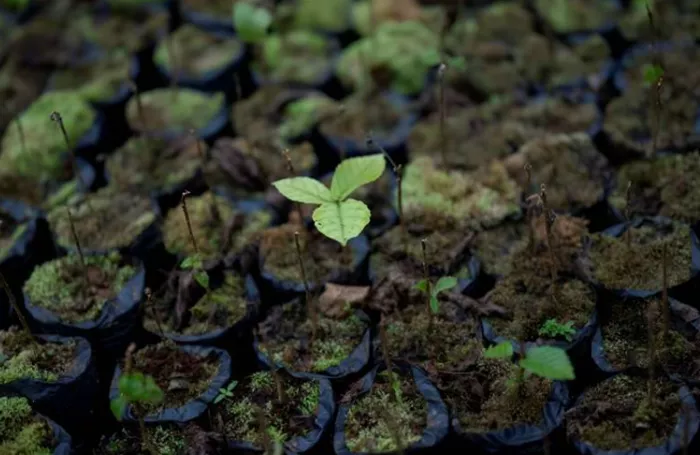Monotonous Sound May Boost Plant-Enhancing Fungus Activity, Study Reveals.
A recent study published in Biology Letters suggests that playing a monotonous sound can stimulate the activity of a fungus that promotes plant growth. This finding opens the door to the possibility that music or sound could enhance crop and garden productivity.
The debate over whether music can aid plant growth has been ongoing for years. A notable investigation by the US television show MythBusters found that plants exposed to death metal and classical music showed slight growth advantages compared to those left in silence. However, they deemed the findings inconclusive.
As plants face numerous human-driven challenges—such as erosion, deforestation, pollution, and a looming extinction crisis—the survival of global biodiversity and crops is increasingly at risk.
The new study emphasizes that “the role of acoustic stimulation in fostering ecosystem recovery and sustainable food systems remains under-explored.”
Australian researchers built on previous research that exposed E. coli bacteria to sound waves. They aimed to investigate the effects of sound on the growth rate and spore production of the fungus Trichoderma harzianum. This fungus is commonly used in organic farming due to its ability to protect plants from pathogens, enhance soil nutrients, and promote growth.
The researchers created small sound booths to house petri dishes filled with fungi. Instead of popular music, they played “Tinnitus Flosser Masker at 8 kHz,” an audio track from a variety of white noise videos on YouTube designed to relieve tinnitus or help babies sleep.
Jake Robinson, the lead author of the study from Flinders University, described the sound as resembling “the sound of an old-school radio in between channels.” He explained, “We chose this monotone for controlled experimental reasons, but a more diverse or natural soundscape might be more effective. This requires further research.”
The experiment involved playing the sound at 80 decibels for 30 minutes each day. After five days, the fungi exposed to sound showed increased growth and spore production compared to those in silence.
Although the results are not definitive, the researchers proposed a few explanations for this phenomenon. One possibility is that acoustic waves might convert into a fungi-stimulating electrical charge through a process known as the piezoelectric effect.
Another theory involves tiny receptors on the fungi’s membranes called mechanoreceptors. These receptors are similar to those in human skin that respond to pressure and vibration. Robinson noted, “Sound waves might stimulate these mechanoreceptors in the fungi, triggering a series of biochemical events that activate or deactivate growth-related genes.”
“Our preliminary research indicates that fungi respond to sound, but we still need to determine if this impacts plant growth. That will be our next step,” he added.
Robinson raised important questions for future exploration, including whether sound can influence soil or plant microbial communities, if it can accelerate soil restoration, and what effects it might have on soil fauna. “There are many important questions to keep us busy,” he concluded.
Related topics:
- Choosing the Right Plants for Your Garden
- Plants Engineered by Scientists to Provide Meat-Like Nutrients
- Dividing Perennial Plants During the Fall


